Women are changing the Indian culinary industry, one concept at a time
On the occasion of International Women’s Day 2023, YS Life had candid conversations with India’s leading ladies in the F&B industry to get a slice of the state of affairs in the kitchen today.
As a gawky child all of eight or nine years, I would sit beside my mother as she quickly jotted down recipes relayed by chefs on television, many of whom were male.
I grew curious, beginning to piece together why there were never any women in the spotlight, but I found no answers.
It struck me, over the years, that women always existed in the culinary space, but they hardly ever received the attention they deserved. Fortunately, the landscape is beginning to transform now, thanks to the new crop of chefs who are at the helm of several professional kitchens in India.
It’s not like they haven’t faced challenges–the difference lies in their attitude; their grit and determination to shatter stereotypes. Today, women in India’s hospitality and F&B space are walking shoulder-to-shoulder with the men, taking risks and presenting diverse concepts to their patrons. Many of them are also going above and beyond to preserve and document their heritage cuisine.
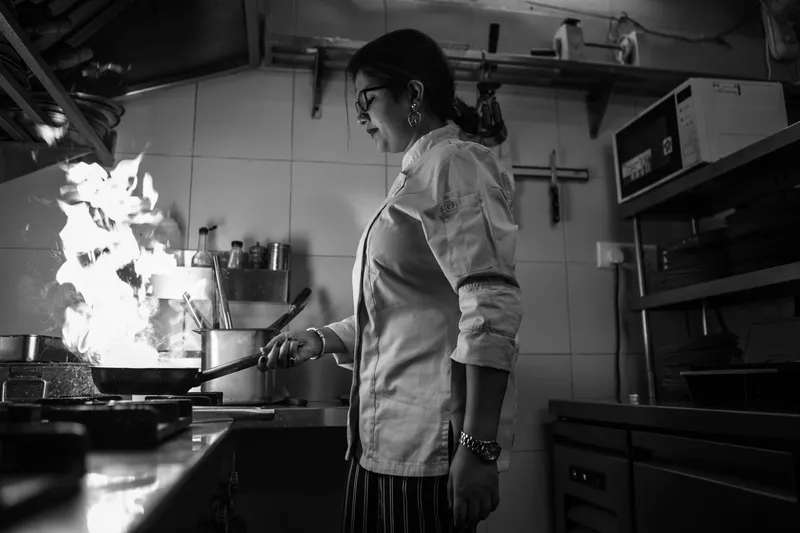
Chef Megha Kohli at work
On the occasion of International Women’s Day 2023, YS Life had a freewheeling chat with some of the top Indian women in cuisine to understand more about their work, the state of affairs in the kitchen today, and if genuine change is underway in the industry.
Experimentation leading the way
It’s interesting how most chefs–from Anahita N. Dhondy, Vanshika Bhatia, Sambhavi Joshi, Anukriti Anand, Megha Kohli, to many others began experimenting at an early age.
It could come across as sheer coincidence for the unversed, but it’s only fair to commend these women for having the clarity and vision to turn their dreams into reality. Not only are they running successful ventures today, but each of them has built a strong identity and is widely recognised for their innovative concepts, not just on the home turf.
While Dhondy (of SodaBottleOpenerWala fame) has been consistently working towards preserving Parsi cuisine, Bhatia’s concepts– Petite Pie Shop and OMO– are unique, stringing along a loyal set of patrons.
“Although I studied French cuisine and pastry, ghar ka khana (food cooked at home) always topped the list for me. I have always been an advocate of Indian food and believe it has much more complexity and layers to it,” Dhondy recalls. “When I cooked the cuisine for a global audience in London, they fell in love with it. While I was there, I made a decision to come back to India and do something with Indian cuisine; I wanted to popularise, talk about and feed people Parsi food,” she adds.
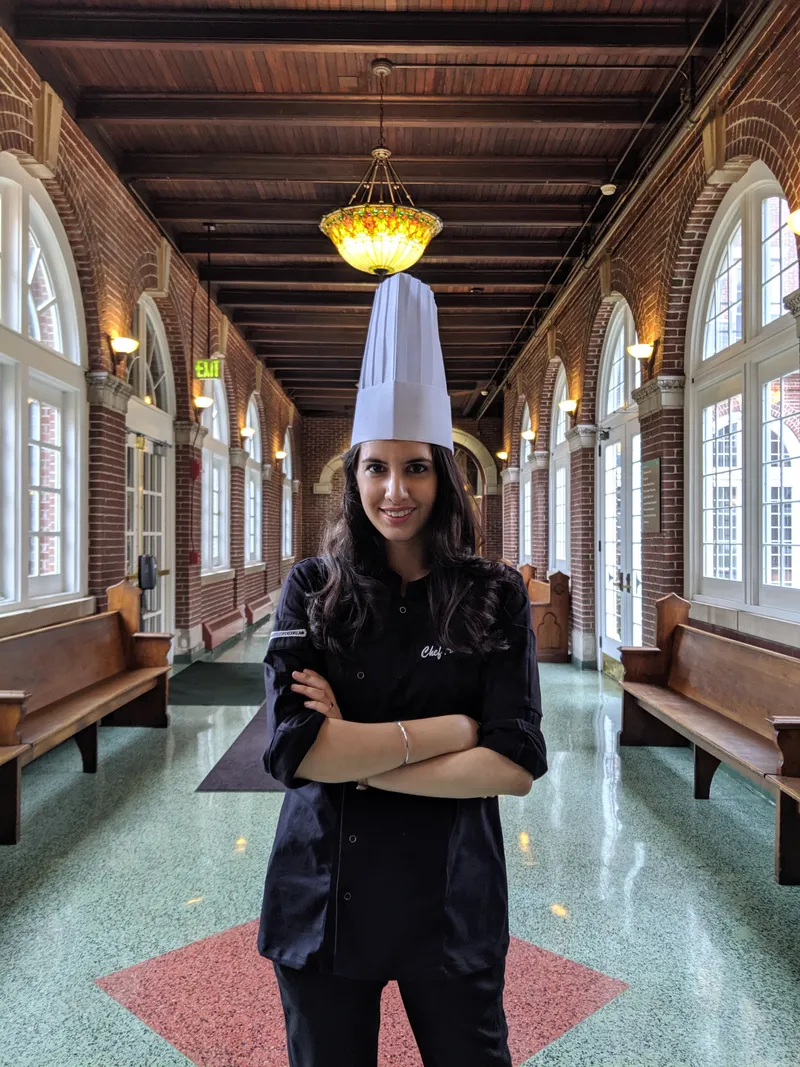
Chef Anahita Dhondy
There are others like Joshi who have had equally fascinating journeys. After working with the likes of The Table in Mumbai, and Le Cirque at The Leela Palace New Delhi (and some international names), she discovered a love for pasta and founded Casarecce (meaning ‘homemade’ in Italian) in 2020–an ode to sharing her love for fresh, handmade artisanal pasta created with the best Indian ingredients.
There’s also Chef Kohli, who is currently heading The Wine Company Gurgaon, Cafe Mez Gurgaon, Mademoiselle and Rosé in Goa, and has been a part of The Oberoi Group and several fine dining restaurants in the past. She is extremely passionate about promoting lesser-known regional cuisines of our country and has been around for a long time.
“Women who are chefs are now leading some of the best restaurants, with great innovative concepts. All of them have exhibited courage and overcome challenges to be where they are today. I believe that women chefs are not playing safe – it is their ability to take risks and create great products, which makes everyone take notice of how talented they are,” she adds.
Risk takers at heart
“I definitely believe that women chefs in India today are doing very well and have set a high standard. They are travelling to remote places, opening up their own restaurants, getting the equipment they need, and making their own decisions. They are all so powerful,” shares Bhatia.
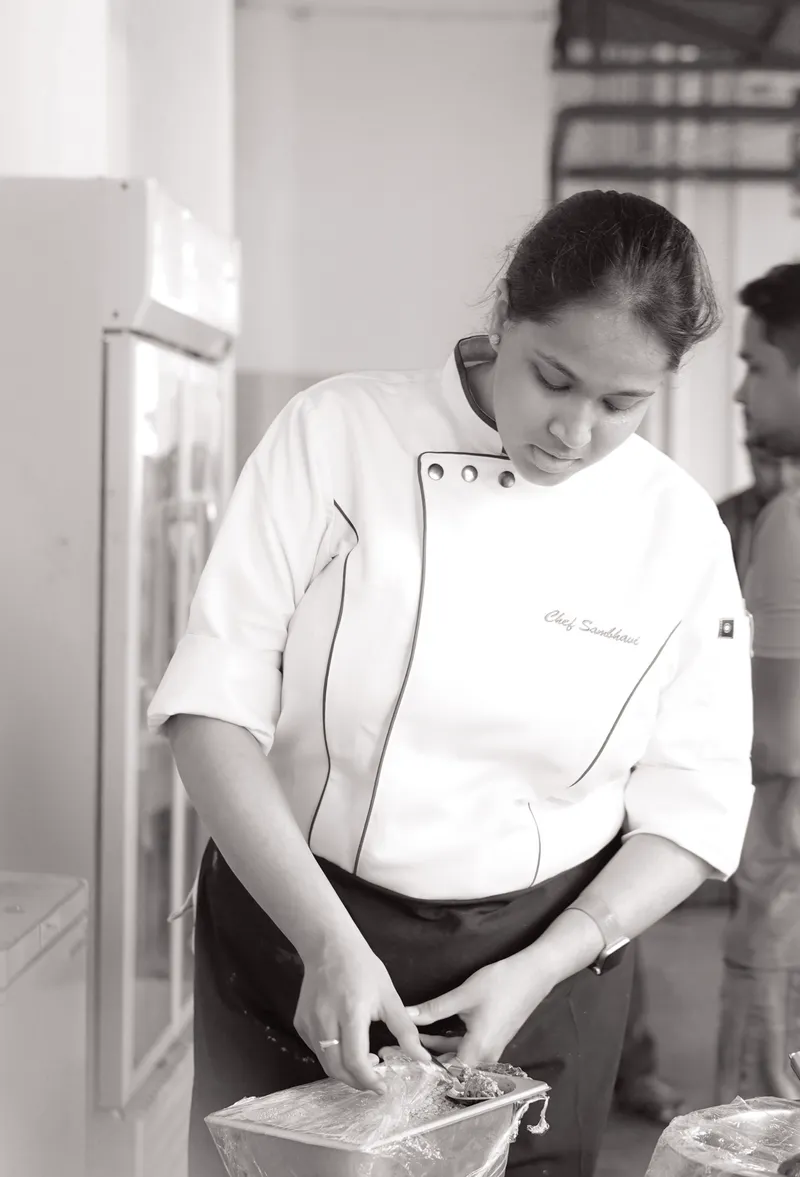
Chef Sambhavi Joshi
Echoing similar views, Dhondy believes women have always been risk-takers; it’s just that kitchens did not make for inclusive spaces earlier. “I think it wasn’t easy for people to hand over the responsibility to women to run a kitchen. They were always fearful of women abandoning them, once they got married or had children,” Dhondy shares. “Today, women in the culinary industry are working equally or probably more than men, and there’s no fear. Things are changing massively and more women are becoming a part of the industry," she says.
Home chef, caterer, and the founder of Kanak by Sherry and A Girl From The Hills, Sherry Mehta believes that as women—the tendency is to feed from the heart. This would then mean picking food that would have comfort at its core, appealing to friends, families, and diners.
It's a different story today.
“Lately, thanks to access to global flavours and knowledge, more and more women chefs are experimenting with dishes. We are a small bunch, but an increasingly progressive one at that,” says Mehta, who has been instrumental in researching and recreating dishes from undivided Punjab, and is now also bringing mountain cuisine to the people of India.
Taking challenges head-on
The winds of change have only begun to blow off late. For most of their lives, Indian women have been relegated to the kitchen, but have been juggling multiple roles all the time – that of a mother, wife, educator, and homemaker, among others, says Mehta.
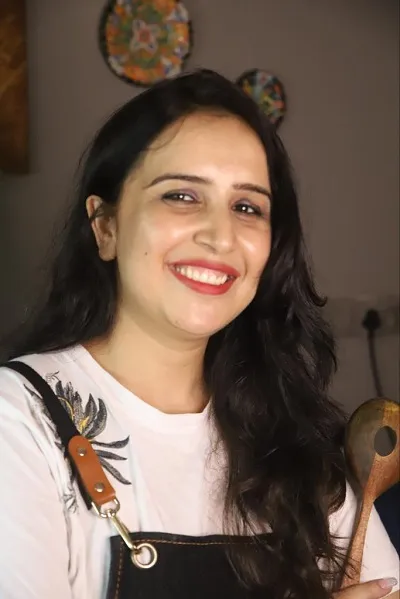
Chef Sherry Mehta
“Perhaps, this is the reason many women fail to climb the required ladder of success. Also, working in a professional kitchen is quite daunting as it involves long working hours and the ability to deal with staff, many of whom carry a king-size ego,” she says.
“Fortunately, I have also realised once they see your talent and your ability to guide them in the right direction, they fall in line and respect you for who you are," Mehta adds.
Chef Bhatia also recalls the early days of her career when she was the only woman in the kitchen. Today, while that may not be the case, there are certain perceptions that continue to exist.
“Even now, there are people who mockingly make statements like ‘you make cake’; they believe it is a lighter job, especially in Tier-II and Tier-III cities. Trust me, something like making bread takes a lot. Plus, even today I am referred to as ‘ma’am’ in the kitchen at times, while my male counterparts are called ‘chef’,” she states.
For someone like Dhondy , who took the reins of the kitchen at SodaBottleOpenerWala at 23, she encountered several situations where she wasn’t taken seriously by the team.
“Many of my peers in the kitchen were of the view that I had come in for an external role, probably something like marketing. They never ever thought I would be standing side by side, and cooking with them,” she says. “The only way I could gain their trust and respect was by working alongside them. That's when they realised I wasn’t there to joke around,” she adds, pointing out that many of her peers had never seen a woman leading a team earlier.
“You need to give them a chance, because, in a male-dominated space like this, they have never seen women in power. I took it upon myself to change the narrative – you need to know the pulse and engage with your teams accordingly,” Dhondy quips.
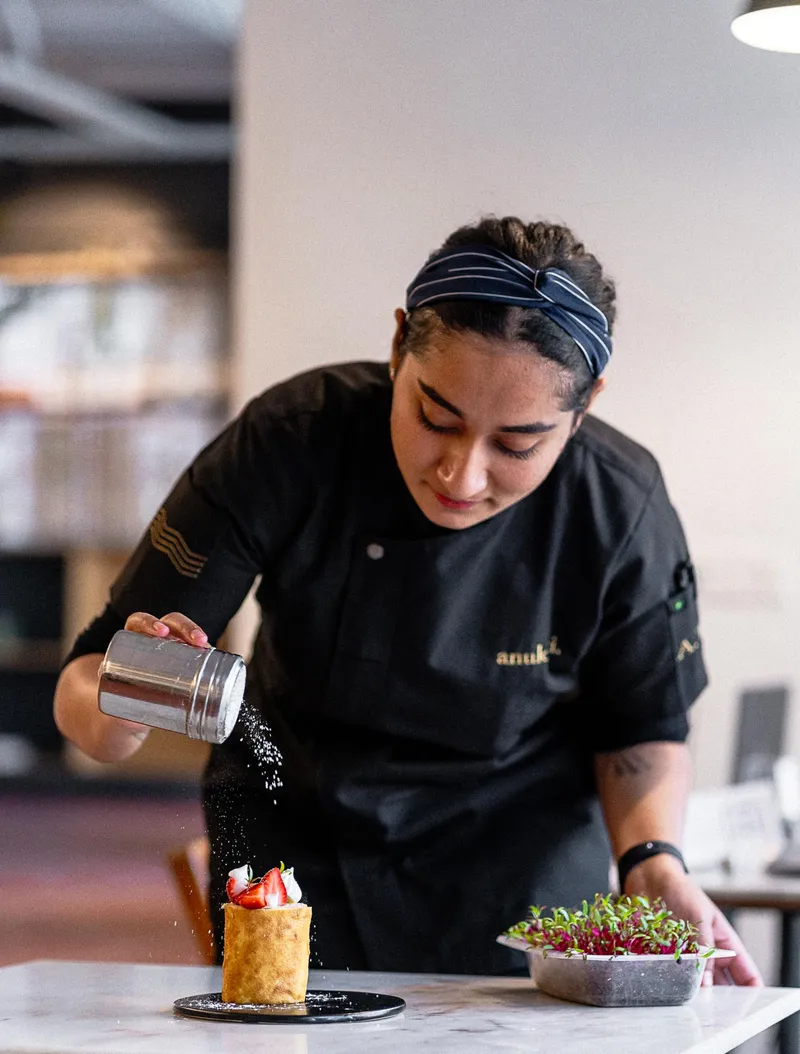
Chef Anukriti Anand
For decades, there was a misconception that women belonged solely in home kitchens, not professional ones, shares Anukriti Anand, Chef-Owner at Altogether Experimental, an all-girls run kitchen, specialty coffee bar, and a modern patisserie in New Delhi.
“Women are top chefs everywhere, but this is quite recent. Everyone is getting educated about this, and people are finally beginning to understand what it really takes to be in the kitchen. You have to be creative, and be on your toes all the time, and it’s not a bad profession to be in. Young female chefs are willing to work long hours, learn and grow, and open up their own restaurants,” she mentions.
When she was previously working in a job, Anand was often the only female chef. In such scenarios, women find themselves going the extra mile to prove themselves, she believes.
This is the story for most women in professional kitchens. When Joshi was at Le Cirque, she was the only woman chef amongst a team of 16 men, which meant a lot of conflicts. She recalls how at that point, the Chef grew tired of her since she fought with every single person.
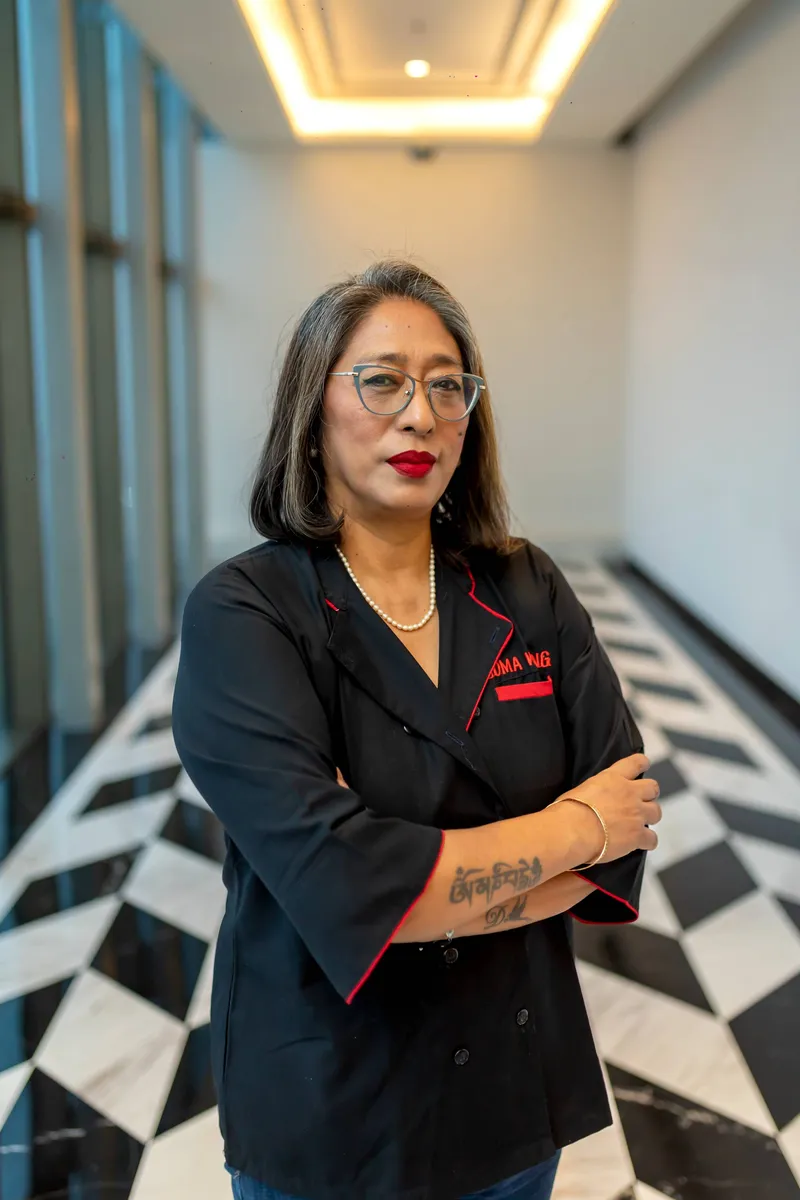
Chef Doma Wang, fondly known as the ‘Momo Queen of Kolkata'
After this, she was made to work in the pasta section, a tiny room that had space only for a single person. In hindsight, it worked well for her and she launched her brand on World Pasta Day in 2020.
There's a long way for women chefs to make more noise, believes Chef Doma Wang, fondly known as the ‘Momo Queen of Kolkata, who runs The Blue Poppy Thakali and Boma Asian Bakery.
“Unfortunately, it’s still the men who rule the commercial kitchens in our country. When one talks of famous Indian chefs, it’s mostly those who are based abroad– Asma khan, Maneet Chauhan, Garima Arora to name a few. I am hopeful that in a few years from now, more female chefs will climb the ladder as head chefs," she shares.
Women for women
Radhika Khandelwal, Chef-Owner at Fig & Maple and Ivy & Bean, started her culinary career in 2008 in Melbourne–a true pioneer in the field. The initial years of her career in Australia helped shape her culinary beliefs of local, sustainable and seasonal cooking, giving her the opportunity to lead the conversation on these practices in India.

Chef Radhika Khandelwal
On being asked if the industry has truly changed over the years, she’s quick to respond, “In the past 17 years that I have been cooking, I have seen a massive increase in the number of women in the industry, with a large population having made it to the top,” she says. “When it comes to women in the kitchen, it is upon the establishment that they work at and the city they live in to create a safe space for them to thrive,” Khandelwal adds.
In India, family and societal pressures imposed on women also act as a hindrance.
“In order to work restaurant hours, women need support from their families, have a safe commute and be in a comfortable environment at work. Unfortunately, despite there being an increase in the number of women in the industry, it’s nowhere close to what one would like it to be,” adds Khandelwal.
While it may not be easy, chefs like Anand are attempting to create spaces where women are at the forefront in the kitchen. When she began hiring in 2019, it was clear that she wanted to have an all-girls kitchen. It was a social experiment, but she was determined to follow this path.
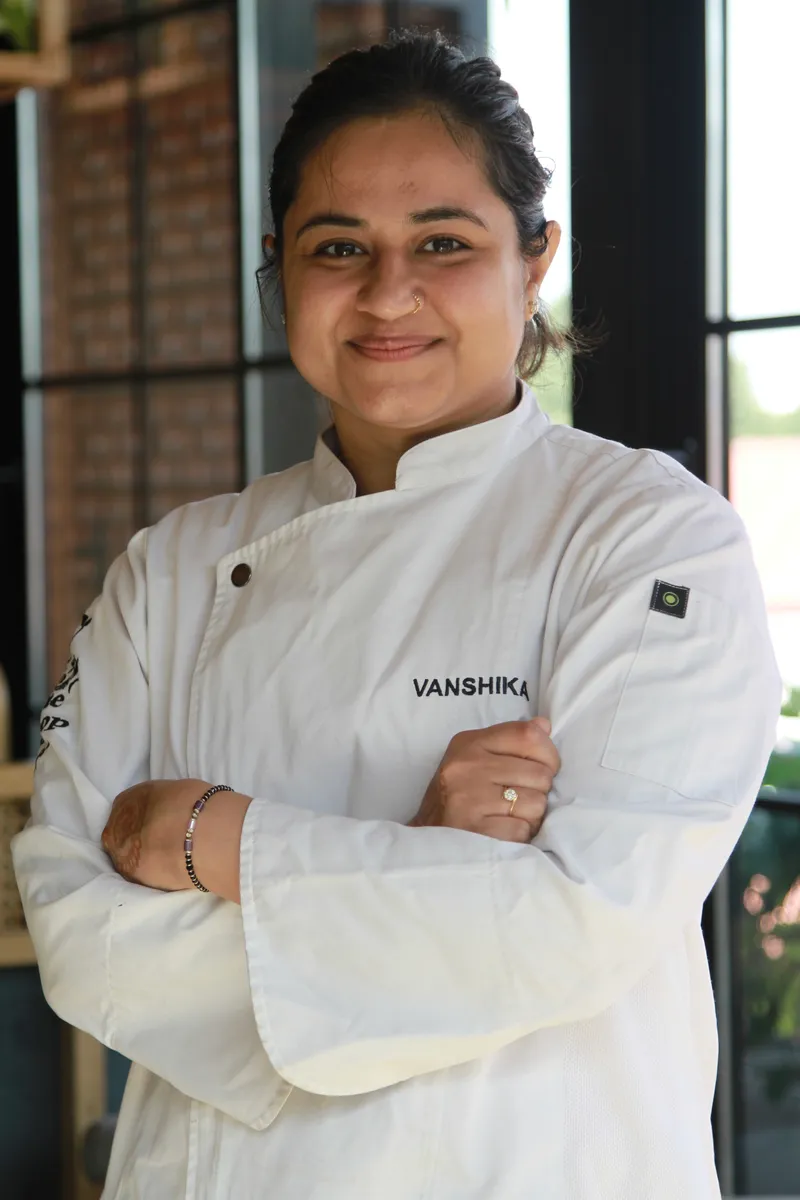
Chef Vanshika Bhatia
Similarly, Chef Bhatia tries her best to hire more women in her kitchen. Not only does she think they work better, but they are also more receptive to feedback. “Some male chefs get intimidated and then feel awkward; their ego gets in the middle,” she remarks.
Of course, things still need to change in the industry, but it’s important to take a pause and applaud the progress that has been made.
As Chef Kohli rightly says, "Women are leading in every sphere in the culinary industry–as head chefs, chef-partners, and chef-owners. I feel support goes a long way, and many women earlier didn’t have the support of their families to work till late or to join a male-dominated industry, which is why many they couldn't sustain being in the industry. However, that is changing now.”
(The copy was updated to fix grammatical and factual errors)
Edited by Akanksha Sarma







